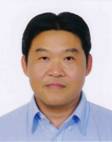
Prof. Zhongzhu Qiu
Shanghai University of Electric Power, China
Title: Modification of Microencapsulated Phase Change Material(MPCM) and Its Hydrophobicity heat resistance
Abstract:
As a new energy storage material, MPCM can store and release energy through phase change from external temperature changes, which plays a positive role in energy saving, emission reduction and environmental protection. This paper chooses paraffin as the core material and urea - Melamine - formaldehyde resin as shell material, carboxylated carbon nanotubes (CNT), graphene quantum dots (GQDs) and nano aluminum as modifier. By changing the type and amount of modifiers, MPCMs and MPCM suspensions were prepared. The appearance, particle size distribution, thermal conductivity, heat storage performance and physical stability of the microcapsules were tested and analyzed.
There was no significant effect on the formation of microcapsules when the addition percentage of GQDs and nano aluminum did not exceed 3%, but 3% percent of CNT would lead to the failure of coating.
CNT and GQDs both have an effect of reducing the particle size and improving the uniformity of MPCM. The average particle size of the unmodified MPCM was 7.19 μm, and the average particle size of CNT and nano aluminum modified MPCMs ranged from 5.15 μm to 6.37 μm. The average particle size of GQDs and nano aluminum modified MPCMs ranged from 4.62 μm to 6.87 μm.
CNT, GQDs and nano aluminum can enhance the thermal conductivity of MPCMs, and GQDs have the best performance. The thermal conductivity of the unmodified microcapsules was 0.223 w/ (m k). The thermal conductivity of CNT and nano aluminum modified MPCMs were in the range of 0.591 w/(m k) and 0.634 w/(m k), while GQDs and nano aluminum modified MPCMs’ were in the range of 0.635 w/(m k) and 0.667 w/(m k).
The unmodified MPCM had a supercooling degree of 13.50℃, CNT and nano aluminum modified MPCMs reduced it to 5.83℃, while GQDs and nano aluminum modified MPCMs reduced it to 4.51℃. Although the modifiers reduced the supercooling degree, the enthalpy of microcapsules decreased with the increase of addition amount.
When the ratio of modifiers are 4.5% nanometer aluminum and 2% CNT, 4.5% nano aluminum and 2% GQDs, the MPCM suspension stayed stability for 48h, and their physical stability were greatly improved.
In conclusion, CNT and nano aluminum co-modified MPCMs and GQDs and nano aluminum co-modified MPCMs not only reduced supercooling degree, improved thermal conductivity, but also enhanced the physical stability of MPCM suspensions.
Biography:
Professor & Dr Zhongzhu Qiu is currently the Vice Dean and Professor of the College of Energy and Mechanical Engineering, Shanghai University of Electric Power, China. He is the Expert of China Academic Degrees & Graduate Education Development Center and also the Expert of Shanghai Municipal Science and Technology Commission.
He obtained the PhD degree at Tongji University (China) in 2002. Between 1992 and 1996, he was a lecturer at Building Services Division at Qingdao Institute of Architectural and Engineering. After completing his PhD degree, he worked at Tongji University as a Post-Doctoral Research Fellow for two years (2002-2004), and then he moved to Shanghai University of Electrical Power to take a role of Associate Professor and was promoted to the Professor and Director of Thermal and Power Engineering Division at this University at December 2009. During January to August 2008, he went to City University of Hong Kong to work on a project as a Senior Research Fellow. Between December 2012 and November 2014, he did his research as Marie·Curie Research Fellow at the Energy Technologies Laboratory in University of Hull of UK. Professor Qiu is experienced at solar energy, thermal energy storage, building energy efficiency and HVAC technologies, energy efficient & low emission thermal power station technologies, with particular interest in PV/thermal systems. He has over twenty years' research experience in the area of energy technologies in Europe and China. He has been involved in more than 20 research projects funded by governments and industries, undertaken 18 engineering consultancy projects, won 3 distinguished awards, and been awarded 6 national patents. He is the author of more than 70 papers published on national/international referred journals and conference proceedings. He taught course of Boiler Principle by English language for training class from south-east countries, e.g. Pakistan, Indonesia, etc.